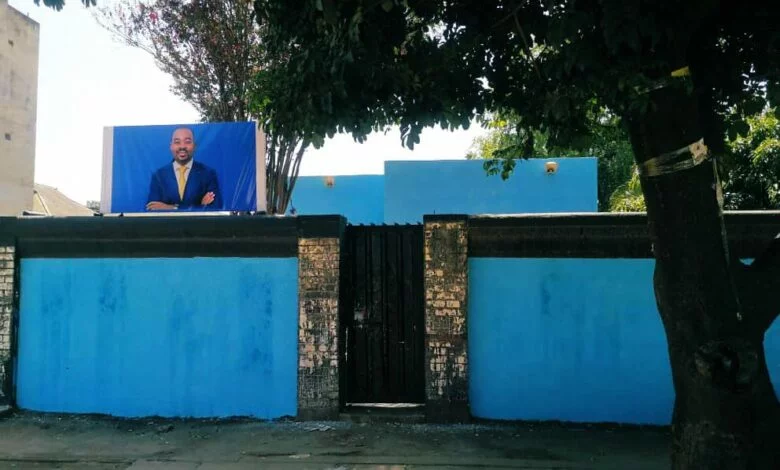In a significant ruling that may impact political dynamics in Zimbabwe, the Bulawayo High Court has directed Nelson Chamisa, a prominent opposition figure, and his followers to vacate the Citizens Coalition for Change (CCC) party offices in Bulawayo.
Justice David Mangota delivered a verdict on March 15, resolving a dispute that spotlights the intense factionalism within the CCC. The case was initiated by Sengezo Tshabangu, who represents a faction within the CCC, against Chamisa, the party’s former leader.
Tshabangu’s legal action, filed on January 30, accused Chamisa and his associates of forcibly seizing the party’s Bulawayo headquarters, marked by the building’s re-painting in blue and black—the colors symbolically associated with Chamisa—and the placement of his portraits around the premises.
Chamisa, who has distanced himself from the CCC following his resignation, denied any involvement with the individuals who occupied the property. He further stated that he has not been part of any political movement since his departure from the party.
However, Justice Mangota’s judgment painted a different picture. It highlighted that Chamisa’s connection to the takeover was evident, noting the strategic use of colors and portraits as indicative of his influence. The judge emphasized the legal principle that acting through others implicates one in the actions taken, effectively holding Chamisa accountable for the occupation.
“The linkage between Mr. Chamisa and the actions at the CCC office in Bulawayo is unmistakable,” Justice Mangota stated, addressing the court. “The attempt to distance himself from these actions does not absolve him of responsibility.”
The ruling is a clear indication of the ongoing internal struggles within the CCC and raises questions about the future of opposition politics in Zimbabwe. Chamisa’s leadership and the actions of his alleged supporters have been a point of contention, reflecting broader challenges of unity and strategy within the opposition ranks.
This court decision underscores the complexities of political affiliation and property rights in Zimbabwe, where legal battles often reflect deeper political rifts. It also serves as a reminder of the judiciary’s potential role in influencing political outcomes and party dynamics.
As Zimbabwe navigates through a period of political uncertainty, the implications of such rulings are far-reaching, affecting not only the individuals and parties involved but also the broader landscape of opposition politics in the country.
